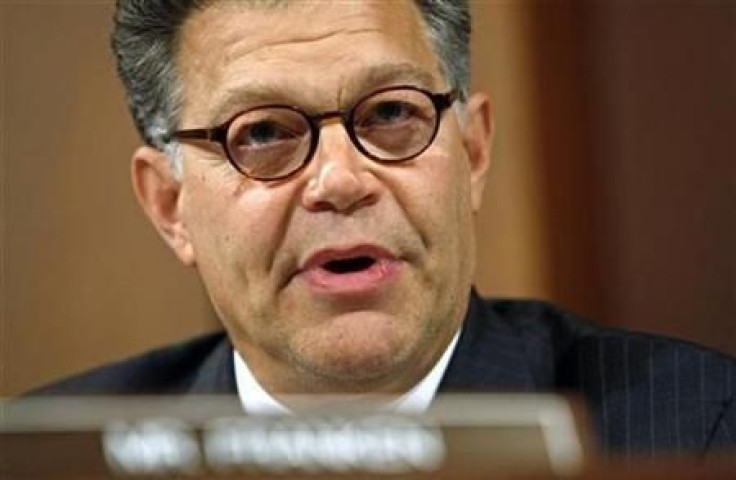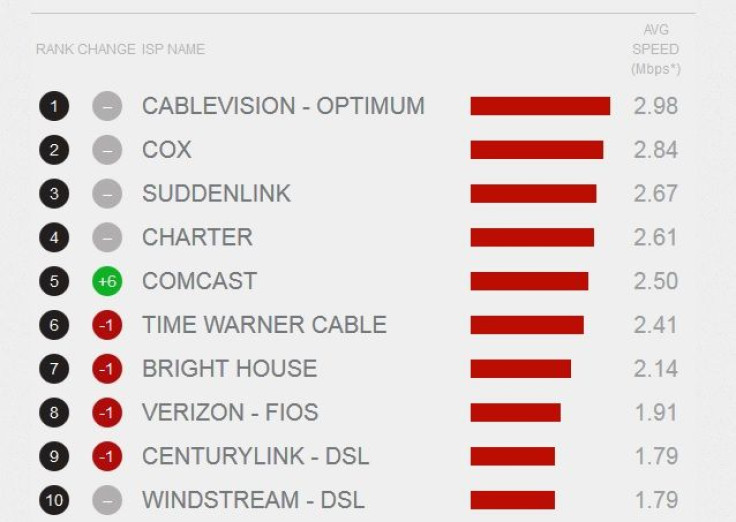Comcast-TWC Merger Critics: Al Franken Courts Netflix CEO Reed Hastings For Input On Consumer Risks
Democratic senator says merged Comcast would gain “anticompetitive advantage in the content market.”

Al Franken hopes the enemy of his enemy will be his friend.
This week the Democratic senator from Minnesota, a vocal opponent of the proposed merger between Comcast Corp. (NASDAQ:CMCSA) and Time Warner Cable Inc. (NYSE:TWC), sent an impassioned letter to Reed Hastings, the chief executive of Netflix Inc. (NASDAQ:NFLX), asking Hastings to share what Franken sees as his singular insight on the potential megadeal. Franken appealed to Hastings because as the head of an online content company that competes directly with Comcast’s NBCUniversal unit, his company also relies on Comcast as an Internet service provider. The “Saturday Night Live”-alumnus-turned-Washington-outsider told Hastings that he thinks Netflix is “uniquely positioned to gauge the risks” posed by the proposed merger, which is still subject to approval by the Federal Communications Commission and the U.S. Department of Justice.
In the letter, Franken expressed an oft-repeated concern: that a merged Comcast-TWC would gain market leverage significant enough to allow it to discriminate against unaffiliated video content (i.e., Amazon) in favor of its own Comcast-owned networks, which include NBC, CNBC, Bravo and numerous others.
“My concern is that Comcast will be able to use its clout in the broadband distribution market to obtain an anticompetitive advantage in the content market. Comcast can achieve this by blocking, degrading, raising costs for, or otherwise interfering with unaffiliated content that relies on Comcast’s distribution network to reach consumers. I am not alone in my concerns. When Comcast acquired NBCUniversal, the FCC noticed the unprecedented nature of Comcast’s vertical integration and concluded that it would ‘increase Comcast’s incentive to discriminate against unaffiliated content and distributors in its exercise of control over consumers’ broadband connections[.]’ Those concerns were appropriate when Comcast acquired NBCUniversal a few years ago; they are heightened significantly now that Comcast seeks to acquire Time Warner Cable.”
The letter follows a recent deal in which Netflix begrudgingly agreed to pay Comcast to connect directly to Netflix servers, thereby improving the streaming quality of Netflix movies and television shows. The terms of that deal weren't disclosed, but Hastings has been critical of the arrangement. In a blog post on March 20, while not directly referring to the Comcast-Netflix deal, he criticized the notion of large Internet service providers “extracting a toll because they can.” The practice, Hastings wrote, is a threat to Net neutrality, the principle that all content on the Internet should be treated equally. He also wrote that Netflix’s reluctant decision to agree to the deal is only a short-term fix.

Despite the criticism, Netflix this month reported that the speed of Netflix content on Comcast’s network jumped 65 percent in March, following the Netflix-Comcast deal. So while it’s clear that Franken and Hastings could be keen allies in the fight to keep the country's No. 1 and No. 2 cable companies from joining forces, it’s unclear if Hastings will soften his stance in light of the improved speed, or if he will see the rapid gain as an illustration of how dangerous it could be if Comcast gets an even bigger piece of the broadband pie.
Franken concluded the letter with a list of questions he would like Hastings or another Netflix designee to answer. A spokesman for Netflix told International Business Times that the company has received Franken’s letter and is preparing a response. Franken wasn't available to comment directly on the letter.
Read the full letter here.
Got a news tip? Email me. Follow me on Twitter @christopherzara.
© Copyright IBTimes 2024. All rights reserved.












